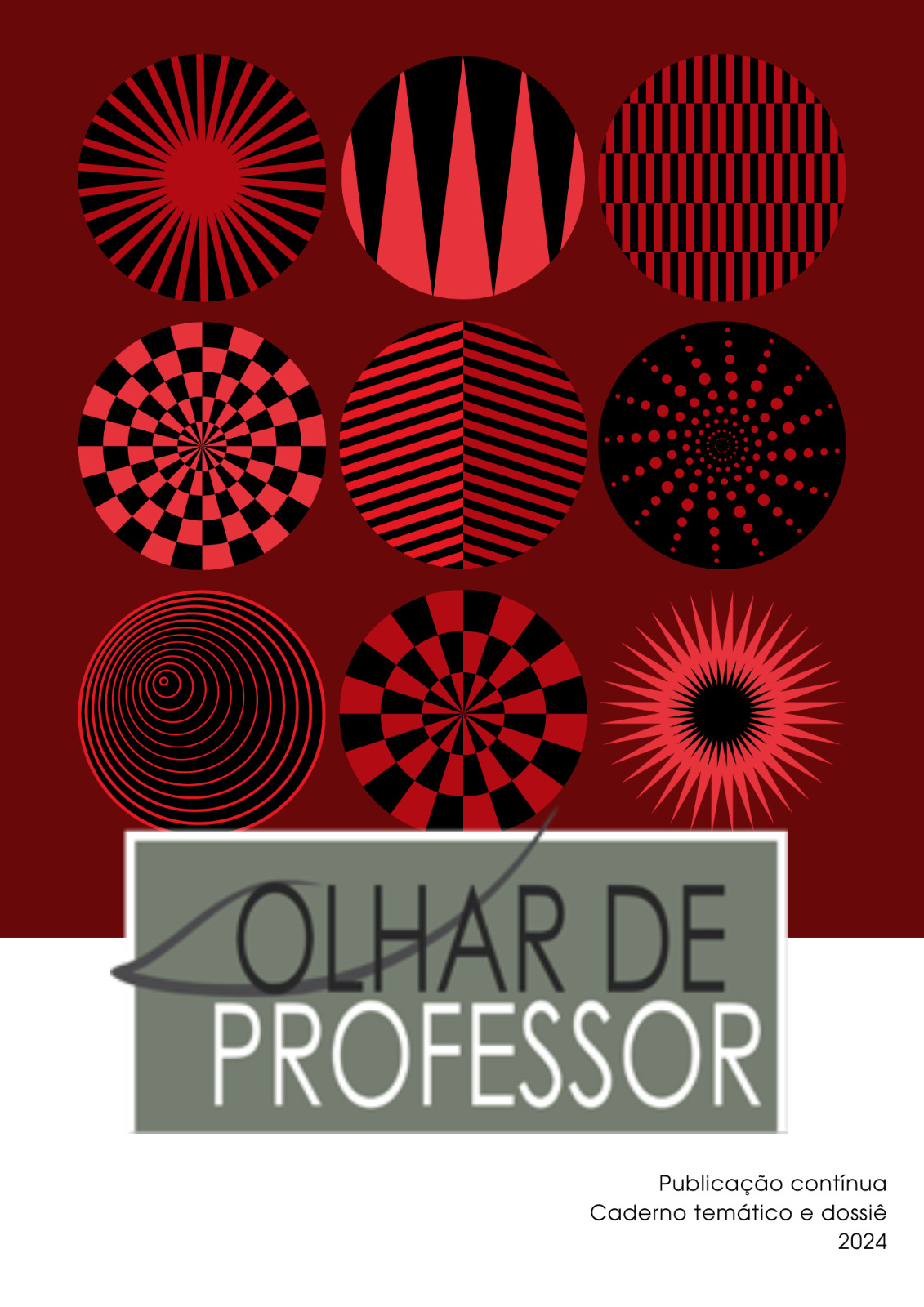Pedagogies of mental maps: senses and meanings for children
Main Article Content
Abstract
The work describes a practice in which a teacher uses Mind Maps as a way of recording the learning of children in the 6th year of Elementary School in Belo Horizonte municipal network in Mathematics classes. During practice, the teacher encouraged them to create Mind Maps as a way of recording their learning and thoughts. Children were encouraged to use colors, symbols and drawings to represent concepts and ideas. The methodology adopted was qualitative, covering direct observation in the classroom, analysis of students' Mind Maps and oral records through video and audio recordings to understand the learning environment and students' behaviors in Mathematics classes. It was observed that the resource allows for a greater understanding of mathematical content, as well as a greater capacity for synthesis and consolidation of learning. The children reported feeling more secure and confident when using this record, as Mind Maps allowed them to visualize and organize information in a clear and structured way. This practice can contribute to a more creative and meaningful education, where children are encouraged to develop their own skills and potential.
Downloads
Article Details

This work is licensed under a Creative Commons Attribution 4.0 International License.
Authors who publish in this journal agree with the following terms:
a) Authors keep the copyrights and concede the right of its first publication to the magazine. The work piece must be simultaneously licensed on the Creative Commons Attribution License which allows the paper sharing, and preserves both the author identity and the right of first publication to this magazine.
b) Authors are authorized to assume additional contracts separately, to not-exclusively distribution of the paper version published in this magazine (e.g.: publish in institutional repository or as a book chapter), with the author identity recognition and its first publication in this magazine.
c) Authors are permitted and stimulated to publish and distribute their papers online (e.g.: in institutional repository or on their personal webpage), considering it can generate productive alterations, as well as increase the impact and the quotations of the published paper.
d) This journal provides public access to all its content, as this allows a greater visibility and reach of published articles and reviews. For more information on this approach, visit the Public Knowledge Project, a project that developed this system to improve the academic and public quality of the research, distributing OJS as well as other software to support the publication system of public access to academic sources.
e) The names and e-mail addresses on this site will be used exclusively for the purposes of the journal and are not available for other purposes.

This work is licensed under a Creative Commons Attribution 4.0 International License.
References
BACICH, L.; MORAN, J. Metodologias ativas para uma educação inovadora: uma abordagem teórico-prática. Penso Editora, 2018.
BUZAN, T. Mapas Mentais e sua elaboração. Editora Cultrix, 2005.
CASSONI, C.; PENNA-de-CARVALHO, A.; LEME, V. B. R.; MARTURANO, E. M.; FONTAINE, A. M. Transição escolar nos anos finais do ensino fundamental: revisão integrativa de literatura. Psicologia Escolar e Educacional, v. 25, 2021. DOI: https://doi.org/10.1590/2175-35392021225301
FREIRE, P. Pedagogia da autonomia: saberes necessários à prática educativa. São Paulo: Paz e Terra, 1996.
GADOTTI, M. Boniteza de um sonho: ensinar-e-aprender com sentido. 2. ed. São Paulo: Editora e Livraria Instituto Paulo Freire, 2011.
GOMES, G. M. C. de A.; CARVALHO, M. de F. Por uma pedagogia do belo: educação, estética e sensibilidades. EccoS–Revista Científica, n. 53, p. 16647, 2020. DOI: https://doi.org/10.5585/eccos.n0.16647
JODELET, Denise. Representações socials, um domínio em expansão. In: JODELET, Denise (Org.) As Representações socials. Rio de Janeiro: Editora da UERJ, 2001, p.31-36.
KRESS, G.; VAN LEEUWEN, T. Reading images: the grammar of visual design. London, New York: Routledge, 1996.
MARTINS, A. M; CARVALHO, C. A. da S.; ANTUNES-ROCHA, M. L. Pesquisa em representações sociais no Brasil: cartografia dos grupos registrados no CNPq. Revista Psicologia: Teoria e Prática, São Paulo, v. 16, n. 1, p. 104-114, jan.-abr. 2014. DOI: https://doi.org/10.15348/1980-6906/psicologia.v16n1p104-114
MOSCOVIVI, Serge. A psicanálise, sua imagem e seu público. Petrópolis, Vozes, 2012.
ROMANATTO, M. C.; PASSOS, C. L. B. A Matemática na formação de professores dos anos iniciais: um olhar para além da Aritmética. São Carlos: EdUFSCar, 2010.
SÁ, C. P. A construção do objeto de pesquisa em Representações Sociais. Rio de Janeiro: EdUERJ, 1998.
SANTOS, A. A. C. Cadernos escolares na primeira série do ensino fundamental: funções e significados. 2002. Dissertação (Mestrado em Psicologia). Instituto de Psicologia, Universidade de São Paulo, São Paulo, 2002. Disponível em: https://www.teses.usp.br/teses/disponiveis/47/47131/tde-08052006-170850/pt-br.php. Acesso em: 22 ago. 2023.





